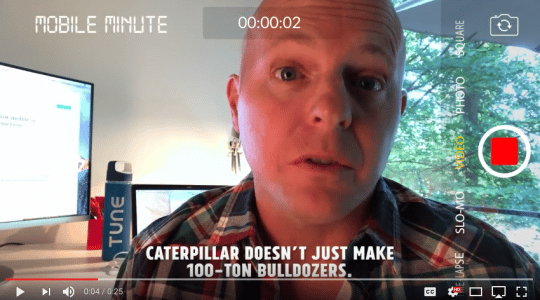
In July, four big names in mobile strategy came together to discuss the convergence of mobile web and apps. They also hit on Ray Kurzweil’s keynote speech, the app economy, smart experimentation, and more.
This is who they are:
- Scott Stanchak, managing director, mobile marketing strategy, beta & emerging platforms, The New York Times
- Ian Sefferman, general manager, TUNE Marketing Console, TUNE
- Aashir Shroff, VP, mobile and app strategy, Wells Fargo
- Interviewer: Doug Zanger, North America editor, The Drum
Here’s what they said.
Understand the app economy right now
Once again, this is the year of mobile. That phrase has been thrown around every year for at least a decade, said Ian Sefferman.
Understanding mobile is an important and obvious observation in digital marketing today, but there’s actually still a lot of change to stay on top of. The way users interact on mobile is evolving and that trend is what companies need to pay the most attention to. Not only that, but mobile interaction is different across industries and app categories. A fantastic mobile strategy in mobile banking might be horrendous in weather apps.
For instance, Aashir Shroff, the VP of mobile and app strategy at Wells Fargo, doesn’t push new users to download the app. They know their prospects don’t spend time looking for an app immediately; instead they go to their mobile website. At Wells Fargo, they grow their “audience through converting existing customers from digital to mobile.”
Early adoption is a double-edged sword
The convergence between mobile web and apps isn’t quite there, but when it happens it’s going to come together really quickly. The convergence means that the two categories will merge together. Today you can type a search into Google and it can scan and show results for apps in the mobile or desktop web browser.
Technology moves at an exponential rate, not a linear one, according to Ray Kurzweil. Not only will mobile web and apps converge before we know it, he predicted a world in the not-too-distant future where genetics, nanotechnology, and robotics converge amidst a crowd of digital marketers and ad tech professionals.
“Mobile computing is really the cutting edge of communications, computations, and information processing,” he said. “But it is just the beginning.”
As tech is moving quickly (or exponentially), there is a huge desire to become an early adopter. Becoming an early adopter of something successful means you saw potential, capitalized on it, and were brilliant in your discovery. But becoming an early tech adopter isn’t always the smart route, and carries a lot of risk with it.
Ian Sefferman notes that you actually can be too early on things, like with bots and voice messaging.
“I believe that we are fundamentally changing how people and consumers interact with computing, but i don’t think that with the bots, and voice as well, Alexas and Siris, we’ve nailed that yet,” Sefferman said. “I think we are a little bit early and you have to take some caution that where you’re placing your bets is going to pay off in the short and the long term.”
Stanchak agreed, saying that there’s a lot of unknown when it comes to adopting bots and could result in big cost.
“We see companies like Facebook and Google getting more involved in it, but for companies, we don’t know how we’re going to monetize it,” he explained. “Yes, we want our content to be distributed elsewhere, but I also want to make money off that.”
Experimentation is where it’s at
Shroff said the key to progress in mobile is dabbling with new technologies. Experimentation doesn’t take a lot of money or resources; a hackathon with a couple developers paired with customer input for the things you’re building could have tremendous impact.
“There’s gotta be some level or tolerance to push the needle, experiment, try different ways to connect with your customers,” A small percent of your budget should be allocated to this. And thinking through ways that you’re going to better the experience.”
It’s difficult to take chances and stand out in the app store. But there are now more opportunities to try different platforms. Big businesses have the luxury of a large budget and can invest in some riskier tactics. On the other hand, platforms like Messenger and Alexa are new places for startups to get their feet wet in mobile, said Shroff.
Final note: The app economy is shifting, not dying
Despite industry worries that the app economy is slowing down, TUNE released data that showed people are still continuing to download apps. All three speakers agreed that the app economy is not dead, but instead has matured. The takeaway for marketers is to figure out how to leverage the app and web convergence to bring the mobile web up in usage and keep the app economy strong and healthy, said Sefferman.
More about this topic can be found in the free report “Marketing’s New Frontier: The Convergence of Mobile Web and App” from The Drum, courtesy of TUNE.
Below is the entire 28-minute video from the Postback panel.
Want good stuff like this sent right to your inbox? Sign up for the TUNE daily blog digest.
Author
Becky is the Senior Content Marketing Manager at TUNE. Before TUNE, she handled content strategy and marketing communications at several tech startups in the Bay Area. Becky received her bachelor's degree in English from Wake Forest University. After a decade in San Francisco and Seattle, she has returned home to Charleston, SC, where you can find her strolling through Hampton Park with her pup and enjoying the simple things in life.




Leave a Reply
You must be logged in to post a comment.